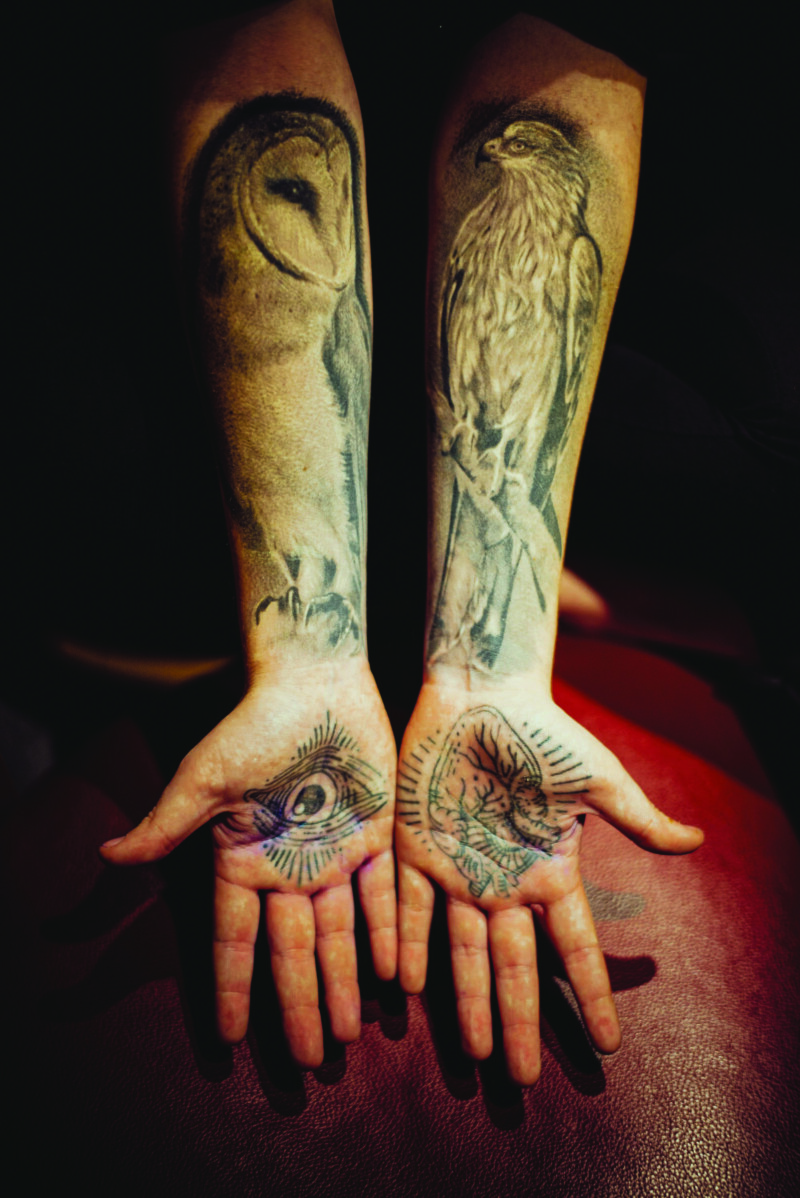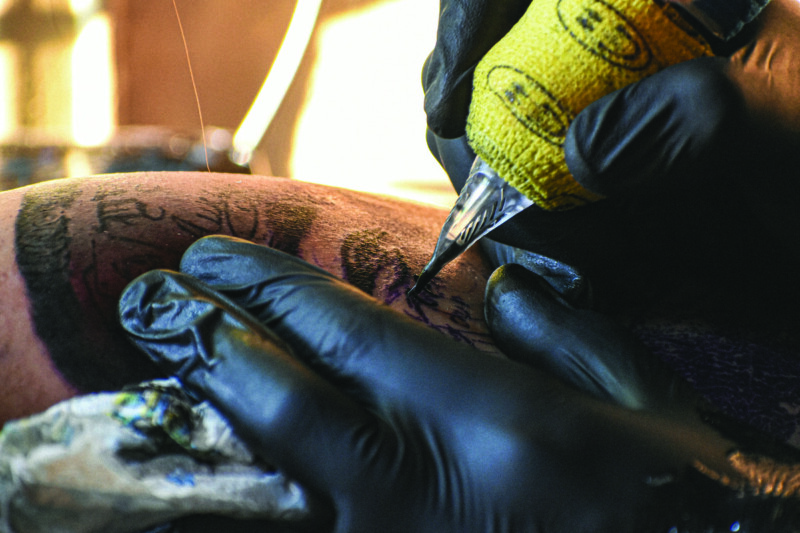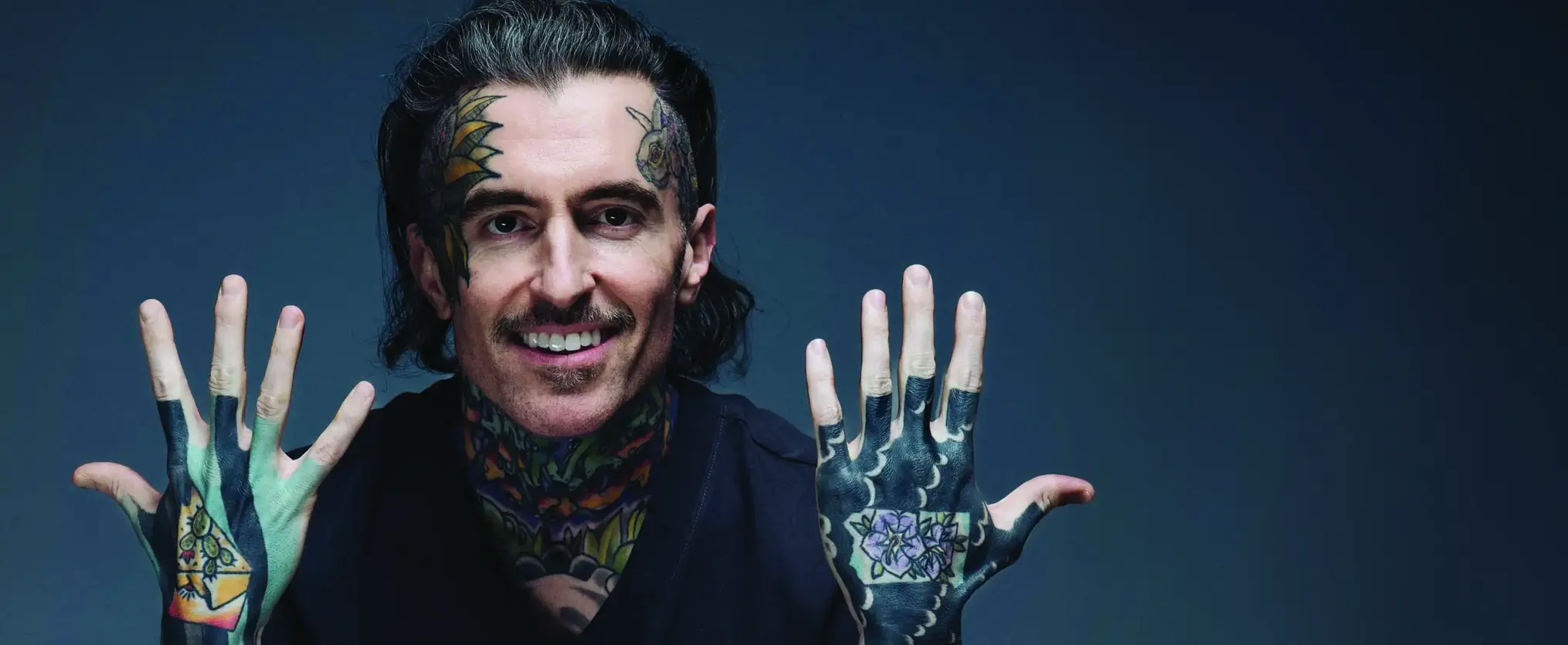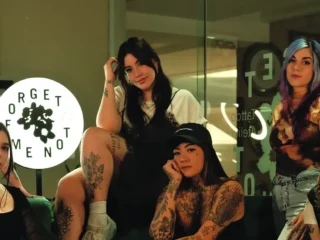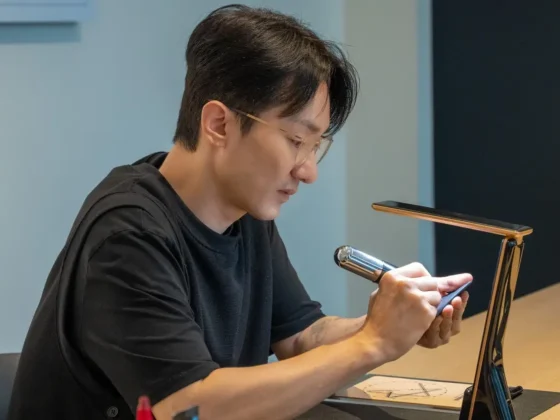Mads Wedel Kristensen
May 12th, 2025
Are You a Tattooed Person?
Sociologists explore the difference between having a tattoo and being a tattooed person—unpacking identity, meaning, and connection to tattoo culture.
In 2012 and later in the 2014 research article “Modified People: Indicators of Subculture in a Post-Subculture World,” sociologist Derek Roberts made an interesting distinction when he looked at tattooed identity and subculture. He divided people with tattoos into two distinct categories: people who have a tattoo and tattooed people.
The first category, much like the name suggests, is comprised of people who have a tattoo but make no further attempts to engage with the tattoo culture or tattoo scene at large — they just have a tattoo.
The second category refers to people like readers of Inked Magazine, who take a step further in their relationships with tattoos, engage more deeply with the culture and industry, and often collect tattoos more extensively.
Roberts made this distinction because he could not disregard the ever-growing popularity of tattoos. Nonetheless, he noticed there was not the same kind of growth among whom he defined as tattooed people.
Sociology professor, researcher, and tattoo collector Beverly Yuen Thompson made a similar assertion in a chapter she wrote for the 2018 book “Subcultures, Bodies and Spaces.”
How Deep is Your Desire?
Thompson recently sat down for an interview to offer insights into this observation. The author of the 2015 book “Covered in Ink” said that negotiation takes place with oneself when deciding to get tattooed or not. For many, this negotiation entails balancing societal norms and the social sanctions that come with breaking them, as well as reconciling one’s sense of self and how tattoos fit into this idea of the self.
For those who choose to go for more extensive and visible body coverage, these variables are often a clear part of their considerations. Thompson and “Tattooing in Contemporary Society” author Michael Rees suggest that this is done out of an effort to be authentic and for acceptance by others who choose to get tattoos. They happily go against societal norms, beauty standards, and expectations to embrace their identity in a way that feels authentic to them — through tattoos. For heavily tattooed people especially, this also means, to some extent, sacrificing the ability to camouflage and adapt to different social contexts.
“People can have a tattoo, but at what point does it really affect their sense of identity?” Thompson asked. “…I asked the women that I interviewed for my book, ‘Can you imagine yourself with no tattoos?’ And all of them screamed, ‘No! It’s part of my identity, it’s how I see myself…’ That’s part of that whole, tattooed person versus just having a tattoo. And so I guess it’s more of the relationship to the tattoo; how important it is to your identity.”
Indeed, what matters more to those who commit to a tattooed identity, especially for those with more extensive and visible tattoos, is their sense of an authentic self. Whereas those who prefer to “just have a tattoo” still want to adhere to societal expectations and norms, which have changed to some extent to be more lenient toward tattoos overall.
Interpreting Inked Individuals
Following the distinction made by Roberts, one might ask, “What ultimately makes you a tattooed person? Is it enough to simply take that extra step to become heavily tattooed? Does it mean moving beyond what might be trendy and committing on a more personal level to being tattooed?”
These qualities are all certainly a part of being a tattooed person, however, there are some important nuances to engage with. “You could have two people with the same amount of tattoos, but it is about the personal connection… whether you connect with the community,” Thompson said.
It’s been argued that becoming a tattooed person requires more than merely collecting — it requires more direct engagement with the culture, art form, and community built around tattoos. “I guess it would be their identification with the community and some kind of engagement with that community as well,” Thompson explained. “So, it’s really kind of in their minds, it is not something external that you could categorize. It’s their level of commitment to engaging with the community and also identifying with it, like having that as part of your personal identity.”
However, being a tattooed person is highly subjective and a person’s perceptions cannot be disregarded. Irrespective of how many tattoos a person has collected, their engagement and identification with tattoo culture and community could still be such that they could be considered — or at least consider themselves — a tattooed person.
Finding Meaning
Another interesting discussion, where the distinction between people with a single tattoo and those with extensive tattoos can be important, is tattoo meaning. For people in the first category, there is often a greater emphasis on attaching a meaningful story or narrative to the tattoo imagery and design to justify it. While this is not completely absent from tattooed people’s considerations, there is a much larger portion of this group for whom being tattooed in and of itself carries a lot of personal meaning.
Rees argues that there is a lot more overlap between the two categories regarding tattoo meaning than in any other aspect, which should be considered. However, there is still some merit to distinguishing between people with tattoos in the way Roberts and Thompson have done namely because there is a significant difference in when and how tattoos start to affect both your sense of self and your interactions with other people, with people who are heavily and/or visibly tattooed, feeling a much greater effect in both instances.
Undoubtedly, as has been recognized time and again, tattoos are increasingly popular to this day. Despite the prevalence of tattoos, it does not make it any less special to take that extra step and commit to being a tattooed person, to put in the effort to engage with both tattoo culture and community on a deeper level, and to find meaning in an identity more deeply connected with being tattooed. Perhaps you may find some comfort in that.
Editor's Picks
Tattooed and Trusted
Breaking barriers surrounding inked bodies in medical and academic spaces.
Dakota Weik – United by Ink
Documentarian Dakota Weik shares his love of ink with appreciation and expertise.



